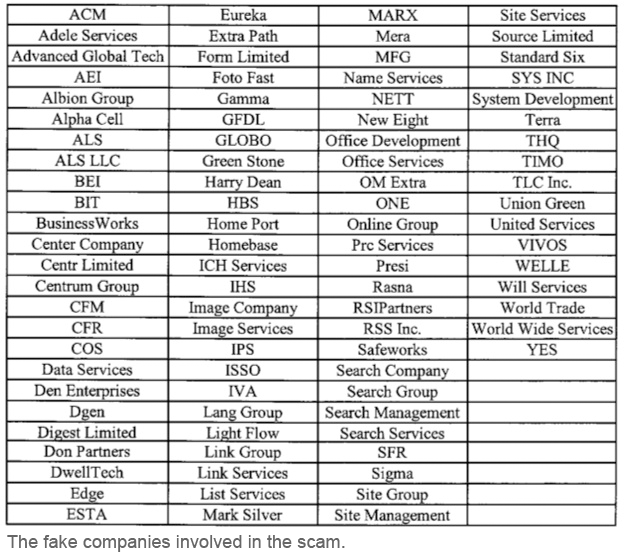Settlement May Cut Credit Card Interchange Fees, Consumers Beware
 Having won the debit interchange battle last year, although they still complain that the final resolution was deeply unfair to them, the nation’s retailers have now trained their guns on a much bigger prize: the credit card interchange fees. In fact, it has now come to light that U.S. merchants have been on the case in earnest even while they were still engaged on the debit front.
Having won the debit interchange battle last year, although they still complain that the final resolution was deeply unfair to them, the nation’s retailers have now trained their guns on a much bigger prize: the credit card interchange fees. In fact, it has now come to light that U.S. merchants have been on the case in earnest even while they were still engaged on the debit front.
A huge antitrust case filed by some five million retailers and trade groups against Visa, MasterCard and thirteen of their member banks, including all of the largest U.S. banks, had somehow escaped everyone’s notice until last week when Forbes told us that a trial date was scheduled for Sept. 12 of this year. It is unclear precisely what the outcome will be, but it seems very likely that a settlement will be reached that will include at least a temporary cut in credit interchange fees. Such a cut could potentially be far more costly for issuers than its debit counterpart was.
And as we now know full well, and many of us predicted before the debit saga unfolded, any fall in interchange revenue will eventually be made up for in some way or other, so that when the dust settles the banks will not be a net loser, but it will be the consumer who will end up footing the bill.
The Case against Credit Interchange Fees
It is hard to believe that a case with such huge potential consequences could have gone unnoticed for so long, but so it happened. Still, since we first heard about it last Thursday, we’ve learned quite a few details.
It turns out that since 2005, merchants including Kroger, Payless ShoeSource and Safeway have filed more than 50 lawsuits accusing Visa, MasterCard and their member banks of price-fixing. These cases have now been consolidated and will be heard by Judge John Gleeson of the U.S. Eastern District of New York, who happens to be the same judge who approved the settlement of a 1996 class action suit led by Wal-Mart against Visa and MasterCard. Quite apart from a monetary settlement in the billions of dollars, that suit led to lower debit interchange fees, but Visa and MasterCard raised credit interchange to offset their debit losses, according to a Deutsche Bank report, cited by Forbes.
The merchants’ argument in the present case, as in the previous one, is that Visa and MasterCard have colluded with each other to charge much higher fees than an open market would have allowed. The plaintiffs seek to be compensated for these overcharges and to bar the defendants from violating the rules in the future.
What Can We Expect
Speculations rage about the possible outcome, but a credit interchange cut is widely expected, to go along with a monetary settlement that seems inevitable and that would be split 67 / 33 between Visa and MasterCard.
Dow Jones’ Andrew Johnson has read Visa’s regulatory filings and has found that the company has set aside $1.6 billion, in addition to $2.7 billion that have already been deposited into a “litigation escrow” account set up primarily for the purpose of resolving the merchant lawsuit. Jones cites an analyst who expects that the total cost for Visa and MasterCard of a potential settlement would be “$5 billion to $15 billion based on industry checks.”
But the brunt of any interchange cut will be borne not by Visa and MasterCard, but by the banks that issue the cards bearing their logos that actually collect the lion share of the interchange fees. These losses could be huge. A Deutsche Bank report, cited by Forbes, estimates that a 75 percent fee reduction would cost US Bancorp $1.2 billion of 2012 revenues, a loss four times bigger than the one caused by the Durbin Amendment. Under that scenario, JPMorgan Chase would lose $5.38 billion, five times the size of the bank’s debit loss and Bank of America’s loss would be $3.68 billion, nearly double the Durbin cost.
Does anyone believe that the issuers will quietly accept such huge losses? If they do not, as experience (not to mention common sense) tells us would be the case, what would be their response? The Durbin aftermath can be used as a blueprint for the potential course of action the banks will take, only this time the magnitude will be much larger.
The Takeaway
The Durbin Amendment to the Dodd-Frank financial overhaul legislation of 2010 led to a Federal Reserve decision last year to cut debit interchange fees to an average of $0.24 per transaction, which translates into a transfer of revenues of about $7 billion a year (estimates vary, but this one is ours) from card issuers to retailers. The banks’ response was fully predictable and was in fact predicted on this blog and elsewhere. As of today, free checking accounts have all but disappeared and various banking fees are either making their appearance or increasing. A Boston Fed paper told us a couple of months ago that young, less-educated and lower-income consumers were worst affected by the debit reform. The upshot of a credit interchange cut would be no different, only the scale would be much bigger.
Image credit: 24company.ru.
Learn how to lower your card acceptance cost
 Learn how to accept credit and debit cards at the lowest processing costs. The Payment Card Acceptance kit contains a video and an e-book:
Learn how to accept credit and debit cards at the lowest processing costs. The Payment Card Acceptance kit contains a video and an e-book:
- Video – Card Acceptance Best Practices for Lowest Processing Costs (18 min).
- E-Book – Payment Card Acceptance Guide (19 pages).



